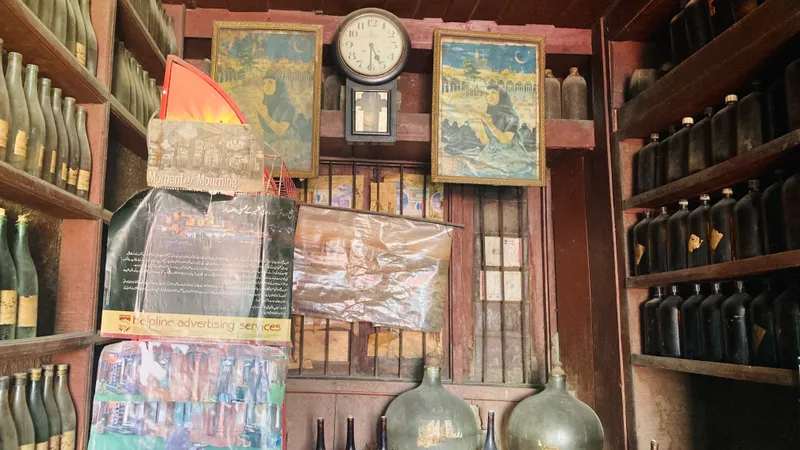Meet the last rosewater maker of Srinagar city
Arq-i-Gulab Dukaan, which carries a 400-year-old legacy of Kashmir, is located in the Zaina Kadal area of Srinagar, exactly near the Shah Hamadan shrine (Khanqah-e-Maula).
Located in Srinagar’s downtown area of Kashmir valley, the 65-year-old Abdul Aziz Kozgar runs a 100-year-old rosewater shop, locally known as 'Arq-i-Gulab Dukaan'.
Surrounded by antique glass jars with the whiff of rose in the air, Kozgar is the last remaining rose water maker of Kashmir.
While some of the jars are filled to the brim with Pantone-colored rose water, most are empty, dating back almost 400 years ago.
The shop, which carries a 400-year-old legacy of Kashmir, is located in the Zaina Kadal area of Srinagar, exactly near the Shah Hamadan shrine (Khanqah-e-Maula).
Inside a large old four-storied mansion, the ground floor is occupied by the Kozgar family and their shop-cum-workshop, which has been in the trade of distilling rose water for more than four centuries.
The large wooden window is lined with large antique coloured bottles that were used to store flower extracts for years. The signage in Urdu announces in bold letters "Rose Water," although other signages announce the availability of extracts, including musk, sandalwood, kewra, cinnamon, and other extract compounds, touted as a cure for several common ailments.
One can get the whiff of the sweet smell of rose water filling the air as Kozgar sells the rose water to his customers, mostly young girls, probably because it has tremendous skin benefits.
The rose water, which Kozgar makes, is distilled from Kashmiri roses (Koshur Gulab) sourced from various parts of the valley. “I don’t use any machines for it. The entire exercise is manual,” says Kozgar.
In the production process, Kozgar boils rose petals and other herbs in a cauldron, and the vapours travel through a mass of coils where it is condensed and distilled.
Compared to machine-made rose water, Kozgar’s produce is pocket-friendly. He charges Rs 40 for a litre.
Besides making rose water, Kozgar’s shop is also famous for a kind of syrup that helps cool the stomach, and patrons believe it to be great medicine for the kidneys.

Wearing a white skull cap and a hazy white Khan dress, Kozgar tells YourStory Weekender that he makes and sells natural rosewater in the city.
“The rosewater is mostly used as a fragrant spray in mosques and shrines. We have been perfuming the shrines and sherbets of Srinagar city for centuries,” he adds.
Being the last rosewater maker of Srinagar, Kozgar says he acquired the skills from his forefathers who moved to the Kashmiri capital from Turkey over 500 years ago.
With a glorious past, the shop was opened around 1820 by his great grandfather after he imported jars, decanters, and other things from France and the UK to open the business in Srinagar.
“Even though artificial rosewaters are quite commonly found in India, this art of natural rosewater distillation is a rare luxury,” Kozgar claims.
He has inherited this skill from his father Habibullah Kozgar, and has been safeguarding the family secret for a long time.
However, the craft of preparing rose syrups and perfumes, plus its production and demand, have declined over the years in Kashmir.
The declining sales due to a lack of interest in handmade rose water and instability in Kashmir have badly hit Kozgar’s business, leaving him facing an uncertain future.
Over the years, the regular lockdowns, curfews, and the fragile downtown situation has added to the miseries of Kozgar.
Amidst all, he is eager that someone should come forward to learn and continue the craft after him, but he is not sure if his young son would take this up or just let it die.
YourStory’s flagship startup-tech and leadership conference will return virtually for its 13th edition on October 25-30, 2021. Sign up for updates on TechSparks or to express your interest in partnerships and speaker opportunities here.
For more on TechSparks 2021, click here.
Applications are now open for Tech30 2021, a list of 30 most promising tech startups from India. Apply or nominate an early-stage startup to become a Tech30 2021 startup here.
Edited by Suman Singh








